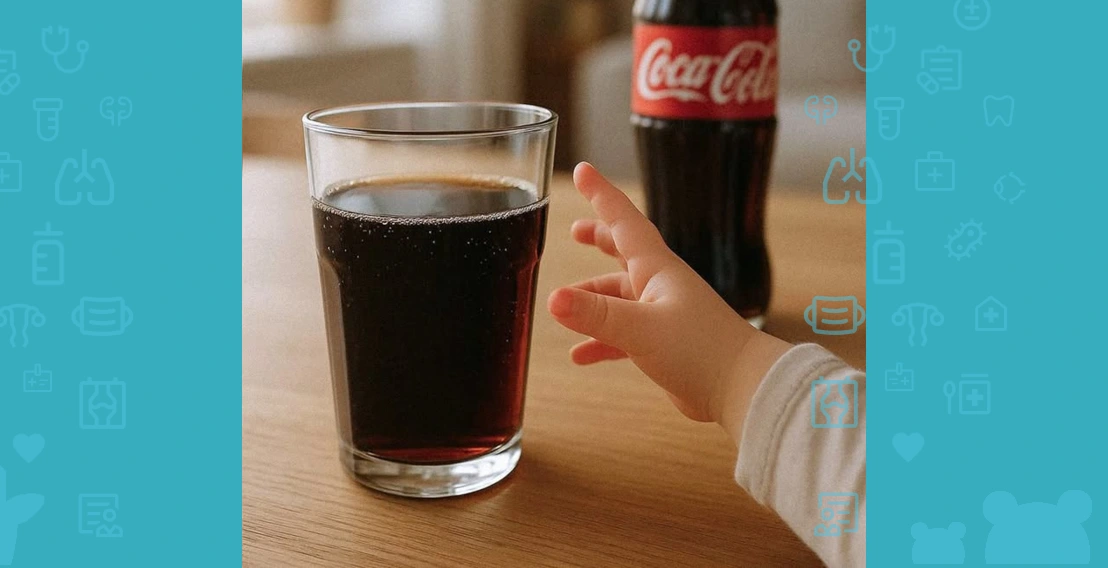There is a popular myth that Coca-Cola can “treat” gastrointestinal infections or vomiting, especially in children.
We'll talk about this separately, but today we'll talk about something else:
Should I give my child Coca-Cola if he has "acetone"?
🔍 What is "acetone"?
Acetonemic state (popularly known as “acetone” ) is a situation when ketone bodies accumulate in a child’s body. These are toxic substances that are formed as a result of metabolic disorders.
🧒 Most often occurs in children aged 2 to 10 years .
🧾 Causes of occurrence
- infections (even common ARVI)
- skipping meals
- excessive physical exertion
- stress
🚨 How does it manifest itself?
- a characteristic acetone smell from the mouth (similar to the smell of nail polish or apples)
- vomiting (sometimes multiple times)
- lethargy , refusal of food and water, headache
🥤 Coca-Cola and "acetone"
Yes, Coca-Cola contains glucose . And also:
- caffeine
- acids
- dyes
- emulsifiers
- stabilizers
- carbon dioxide
🔹 Glucose is really quickly absorbed and temporarily improves well-being.
🔹 Caffeine stimulates the nervous system - this is what creates the "recovery" effect.
But Coca-Cola does not eliminate the cause of "acetone", but only creates the illusion of relief.
✅ What really helps?
- special solutions for oral rehydration (such as “Regidron”, “Glucosolan” )
- frequent and small sips (1–2 teaspoons every 10–15 minutes):
alkaline mineral waters, dried fruit compote, weak tea with sugar - following a diet in the following days
If "acetone" is a story that you are already familiar with, our pediatricians will help you understand the reasons and, if necessary, involve a pediatric gastroenterologist or endocrinologist in solving the problem.
